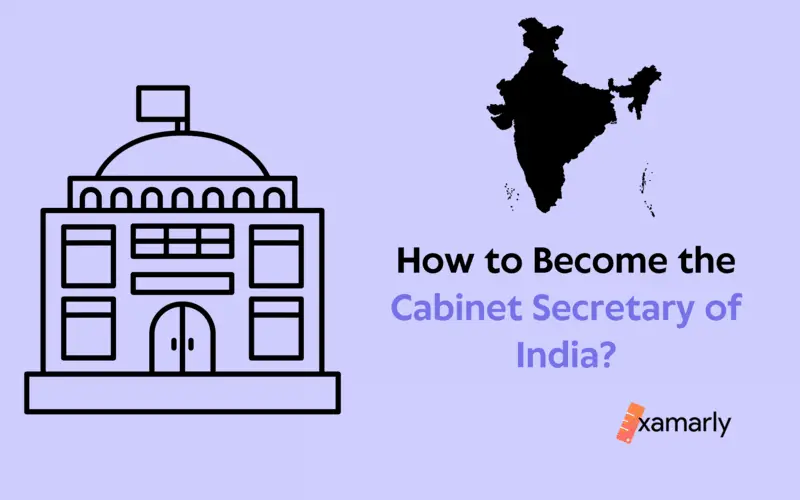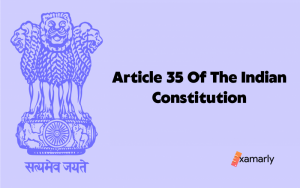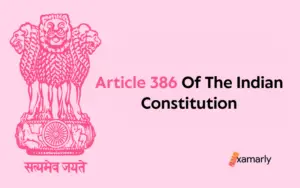You are looking for a way to be India’s cabinet secretary? Well, who wouldn’t dream of becoming the highest-ranking civil servant in the Indian Government! But, it is not a job that comes or sustains easily.
The Cabinet Secretary is in charge of the Indian Administration Service, the Civil Service Board, and of course the Cabinet Secretariate and all other civil services falling under the authority of the government.
Years and years of hard and respectable work coupled with the right kind of experiences and connections can lead you to this post of cabinet secretary.
As a Cabinet Secretary, you are responsible for advising the prime minister and other members of the government. As the liaison between ministers, you will be in charge of ensuring that government runs smoothly.
You’ll also be tasked with settling any confusion or disputes that might arise within the cabinet. By doing all of this, you’ll be in a great position to influence decisions and make a difference in your country.
So, what are the steps a UPSC Exam aspirant must undertake to become a successful candidate for this role? In this article, we will discuss how to become cabinet secretary of India and why UPSC preparation is important for it?
- How to Become Cabinet Secretary of India?
- Civil Service Exams – 3 Stages
- 10 Tips To Prepare Effectively For UPSC Exams
- Why Focus on UPSC Preparation?
- When Can One Become the Cabinet Secretary of India?
- How are Cabinet Secretaries Selected in India?
- The Work of Cabinet Secretary of India
- How Can Examarly Help You in Your UPSC Preparation?
- Conclusion on How To Become Cabinet Secretary of India?
- FAQ's
- Q: Who is the current cabinet secretary of India?
- Q: Can A Woman IAS Officer Become Cabinet Secretary?
- Q: What is the role of the cabinet secretary in India?
- Q: How is the cabinet secretary appointed in India?
- Q: What is the term of the cabinet secretary in India?
- Q: Can the cabinet secretary be removed from his/her post?
How to Become Cabinet Secretary of India?
Before crossing the oceans, one must learn to swing. The first step to getting into any posting of officers in the IAS is one has to crack the UPSC exams. This is undoubtedly your Step 1 on how to become cabinet secretary?
Let us briefly skim through a step-by-step guide on the UPSC exam structure.
Civil Service Exams – 3 Stages
It might already be known to all aspirants that the UPSC Exams happen in 3 stages.
- Preliminary Exam – Preliminary Exam is an objective-based test used to examine the basic knowledge of candidates. the exam paper is divided into 2. Paper 1 tests the general knowledge of the candidate by asking questions of national, historical, political, social, and environmental importance. Paper 2 tests the skills of the candidate focusing on logical, numerical, comprehension, communication, analytical, and descriptive making skills among others.
- Mains Exams – The Mains exam is a descriptive-based test that examines the candidate’s knowledge over 9 papers. It consists of 2 language papers (one being English and the other an Indian Language of choice), 4 General Studies Papers, 2 Optional Papers, and 1 Essay paper.
- Interview – The third stage is the much-dreaded personality interview. Here, members of the UPSC Board step out to assess your personality skills and whether you are competent enough to hold a position in any department of the IAS. The candidate’s intellectual and moral capacity will be tested alongside their ability to make an alert, critical, and balanced judgment.
To know more about the exam pattern of UPSC, preparation tips, and strategies, click on the corresponding link provided in the table below.
10 Tips To Prepare Effectively For UPSC Exams
Here are some effective tips to ace the examination.
- Know the Syllabus: Familiarising yourself with the syllabus will go a long way in helping you figure out the important areas within each subject. Well, it might be common knowledge that the syllabus of the UPSC Exam is vast. That being said, proper awareness of the syllabus will help you divide a plan to study at the optimum pace and depth without waste of time.
- Make a Study Plan: A good piece of advice is that aspirants should plan and prepare a study schedule and strategy in the early stages of preparation. You may choose to start with the basics or depending on your acquired knowledge set. But make sure that proper time management is done between different subjects and their revision. A study plan that incorporates revision and practice is best. It will help you gain an edge over your competitors. They should also avoid studying new subjects too closely to exams as this need to be the time of revision. If not, it causes retroactive inhibition, wherein new knowledge interferes with the retention of previously attained proficiency.
- Choose Optional Wisely: Optional papers play a huge role in shifting your rank in the final score. As they carry a good chunk of weightage, it is crucial that you choose this wisely. The ideal choice should be based on factors like previous subject knowledge and interest, the vastness of the syllabus, and also the availability of UPSC Books. Don’t fall for a popular subject unless you are comfortable with it.
- Make Notes: Note-making is a technique suggested by all UPC top scorers. It works in two ways:
- Making notes will help you in memorizing facts at the time of reparation.
- Further, it will act as a helpful resource for you at the time of revision.
- Writing Practice: Again, this is a strategy most candidates who have cracked the Mains suggest. The ability to score marks depends not just on your subject knowledge but also on your writing skills. So practice writing once in a while, like maybe once every week. This way you get to revise the portions along with perfecting your writing within a speculated time limit.
- Do Mock Test: Make sure to practice mock exams and write test papers. You can use the test papers to manage your anxiety and familiarize yourself with the UPSC exam format. You can improve your problem-solving and higher-order thinking skills by taking executive assessments. These skills are crucial to passing the UPSC exam. You can also practice mock tests to sharpen your question-solving skills and increase your confidence.
- Know Your Current Affairs: Completing current affairs is also essential. Make it a daily habit to read the newspapers and make notes. Aspirants should also try to read magazines and journals pertaining to the areas of preparation. It will help them to understand the topic better and also give them an overview of the world.
- Revise: Revision should essentially be a part of your daily or weekly routine. Additionally, keeping the time limitations in mind, aspirants should dedicate full time to revision at least a month before the exam. This will boost your confidence and help will remember the portion you have studied properly.
- Be Social: We do hear aspirants talking about keeping away from society, family, and friends during preparations. But, this is not a healthy attitude. This can have adverse social and mental effects on you. You should make sure to keep in touch with your family members and friends. Spend adequate time with loved ones to keep you relaxed and grounded.
- Stay Positive and Confident: While it is good to read and watch success stories, don’t let it get to your head. Don’t try and imitate other people to achieve the highest scores. It will only make you feel less confident and waste your time. Instead, have faith in your process and yourself. Having a positive attitude will help in keeping you relaxed and sharp during the exams.
Why Focus on UPSC Preparation?
How can UPSC Preparation prepare you for the Indian Cabinet Secretary’s job? IAS preparation is tedious and time-consuming.
Although preparation for the civil service exam can be time-consuming and frustrating, there are many benefits.
If you prepare well, you can attain the rank of Cabinet Secretary of India. Because qualifying for the UPSC exams is definitely the first step on your path towards Cabinet Secretary.
The job of cabinet secretary is not a walk in the park. This job requires dedication and the desire to succeed.
As Cabinet Secretary, you will have a lot of influence on government policies. You will be required to meet with ministers regularly and organize events within your locality.
In a sense, all the strategies you learned during your course of preparation (like multi-tasking, handling pressure, positive attitude) along with the knowledge you gained through the learning will come in handy when working as a Cabinet Secretary.
When Can One Become the Cabinet Secretary of India?
As we already said, step 1 is clearing the UPSC tests. Further, you should first get posted as an SDM and then upgrade your job position.
Cabinet Secretaries of India are highly visible posts that can only be filled by IAS officers with consistent hard work.
The term for which you are appointed is two years, and the maximum time span is 4 years. If you wish to take on this influential post, you must have the necessary expertise and experience to excel.
Since it is the highest IAS position, getting there will need a lot of time and persistent effort. You can get this job if you have between thirty and thirty-five years of service.
Even Rajiv Gauba, the youngest Cabinet secretary, was 60 years old when he started working there.
Additionally, there are only a certain number of seats available, so you need to have the right leadership skills needed to run the Indian Government’s operations.
Related Article: List Of Cabinet Secretary Of India
How are Cabinet Secretaries Selected in India?
Secretaries in the Indian government are responsible for leading respective ministries. The positions of secretaries include Finance Secretary, Home Secretary, Defence Production Secretary, and many others.
They also coordinate activities across ministries in major crises. What is the process of selecting Cabinet Secretaries in India?
The selection of ministers was historically based on strategy. The professional backgrounds and education of the ministers are a result of their political appurtenance.
Selection is fluid and often depends on your excellence in duties and your equation with the prime minister.
However, in recent years, a more formal selection process has been introduced, where the prime minister interviews several candidates before making his final decision.
Under the 2010 Constitutional Reform and Governance Act, the first civil service commissioner are appointed to oversee the recruitment process to ensure that it is not biased.
The Work of Cabinet Secretary of India
The Cabinet Secretariat is headed by the Cabinet Secretary, who is the senior-most civil servant in the country.
He advises the Prime Minister and supervises the operation of the Cabinet. Though similar to the state’s chief secretary, the role of the Cabinet Secretary has political undertones.
As the head of the civil service, he represents the Prime Minister and commands the confidence of the Prime Minister. This appointment of the Cabinet Secretary can lead to many important appointments.
In the prime minister’s office, the cabinet secretary is the eyes and ears of the Prime Minister. He is the common link that links all the ministries.
Clarifies inter-cabinet communication issues and other confusions. His role also includes keeping records of important information such as the President’s speech and messages.
He keeps track of various inquiry committees, as well as the suggestions for dissolving or adjourning the Lok Sabha. Cabinet Secretariat keeps a log of cabinet meetings and supports the Prime Minister when making decisions.
Cabinet Secretariat organizes cabinet meetings according to Prime Minister’s orders. He creates paper agendas, distributes minutes from cabinet meetings, and oversees the implementation of the Cabinet decision
The duties assigned to a Cabinet secretary vary depending on the Prime Minister. These duties go beyond the administrative function and reach into decision-making.
The Cabinet Secretary administers the Ministerial Code, which governs the conduct of ministers.
It is also called the “Rule Book” and the Question of Procedure to Ministers. This is an extremely challenging job, but it’s also a rewarding one.
How Can Examarly Help You in Your UPSC Preparation?
With online preparations on the rise, we at Examarly are here to keep you on your toes. We specialize in not just giving you notes but also help you out with tips and strategies.
From the point you set a study plan to the day you qualify for the UPSC exam, we promise to be a constant and helpful companion.
So, join Examarly for the best study material and models.
Conclusion on How To Become Cabinet Secretary of India?
If you want to become the cabinet secretary of India, then you must prepare well for the UPSC exam.
It is essential to study the UPSC syllabus and exam pattern before appearing for the examination. Keep a copy of the syllabus on your study desk so that you can refer to it at any time.
Moreover, make use of previous years’ examination papers to get an idea of the type of questions that are likely to appear in the exam. This way, you can make an appropriate plan of attack for the exam and ensure a successful result.
Besides a thorough knowledge of the syllabus, it is equally essential to read standard literature. By standard literature, we mean works that should be read in order to understand a certain topic.
NCERT books are recommended for class 6-12 students. Apart from these books, you should also read relevant reference books.
Make a list of all the books you have to read for the UPSC exam. Moreover, before you start preparing for the exam, you must decide if you want to enter the civil service.
It is difficult but rewarding. Hope higher and work harder to achieve your goals. We, at Examarly, will help you at each step.
FAQ’s
Q: Who is the current cabinet secretary of India?
A: The current cabinet secretary of India is Rajiv Gauba.
Q: Can A Woman IAS Officer Become Cabinet Secretary?
Yes. But when is a question that deems more answers. The absence of women in high-ranking positions like Cabinet Secretary is not due to the absence of talented and skilled women officers. It is often the case that there is a disparity in the male-female ratio in the higher-ranking posts. Your gender doesn’t really matter in high bureaucratic posts, according to Meena Agarwal, a former Indian Railway Accounts Service (IRAS) officer. Deserving female officers can run into difficulties because there are more equally qualified male candidates available.
Q: What is the role of the cabinet secretary in India?
A: The cabinet secretary is the topmost civil servant in India and acts as the chief advisor to the Prime Minister and the Union Council of Ministers. He/she is responsible for coordinating the functions of various government departments and ensuring the implementation of government policies.
Q: How is the cabinet secretary appointed in India?
A: The cabinet secretary is appointed by the President of India on the recommendation of the Prime Minister.
Q: What is the term of the cabinet secretary in India?
A: The term of the cabinet secretary is two years, extendable for a further term of two years.
Q: Can the cabinet secretary be removed from his/her post?
A: The cabinet secretary can be removed from his/her post by the President of India, on the recommendation of the Prime Minister.






